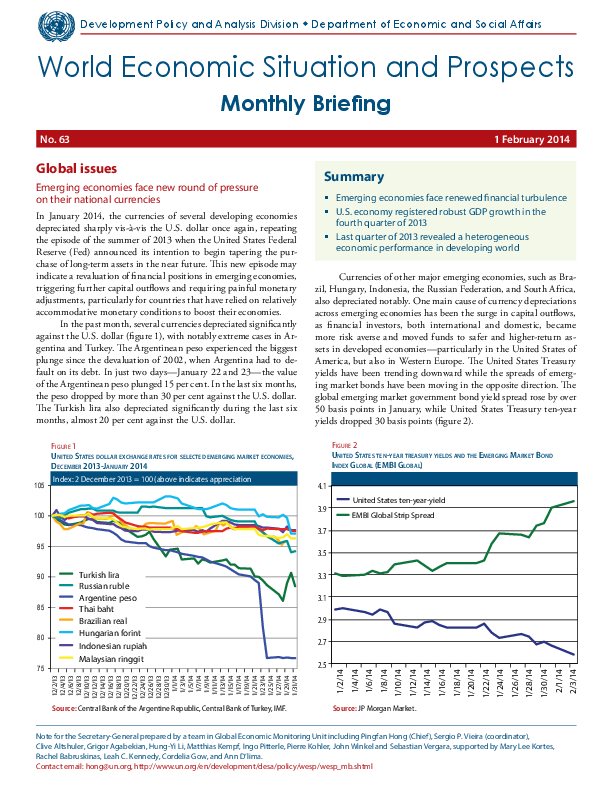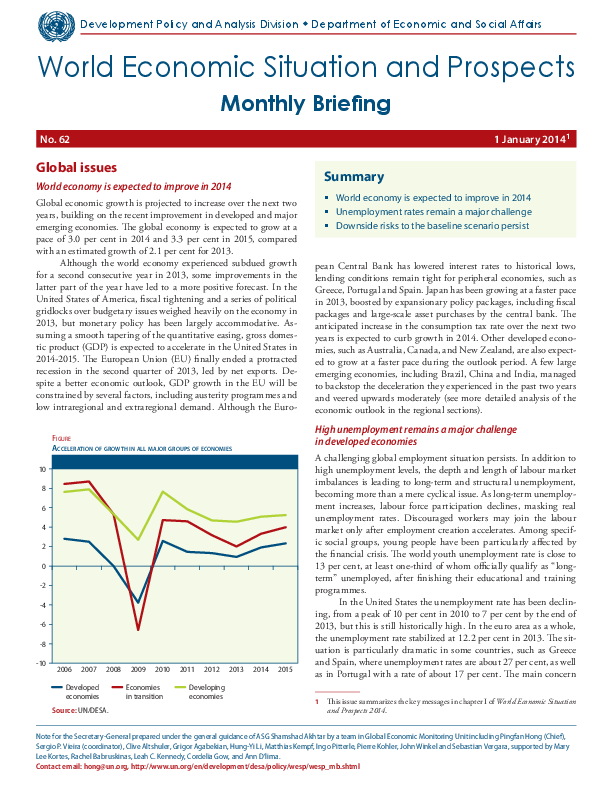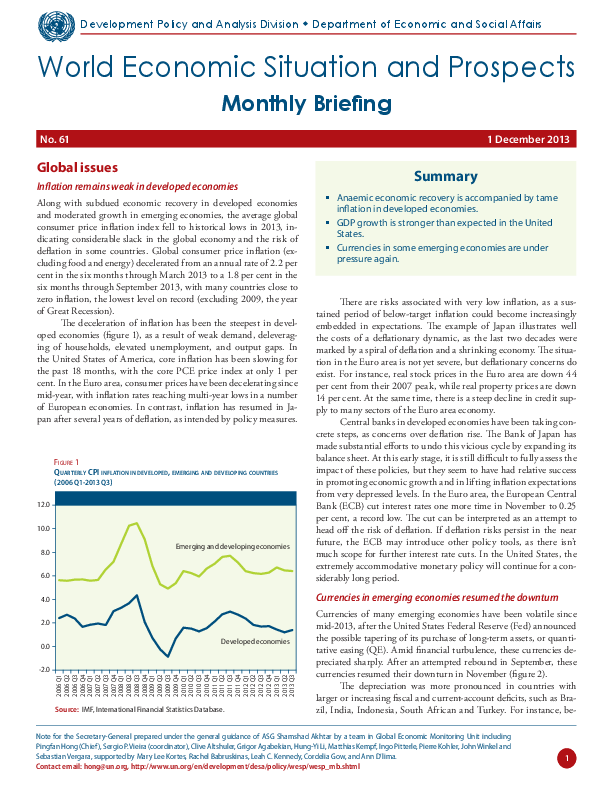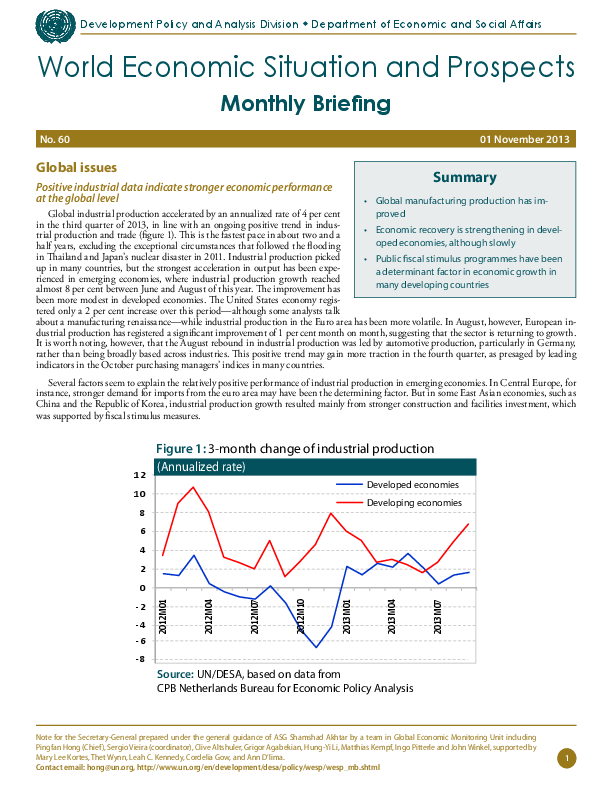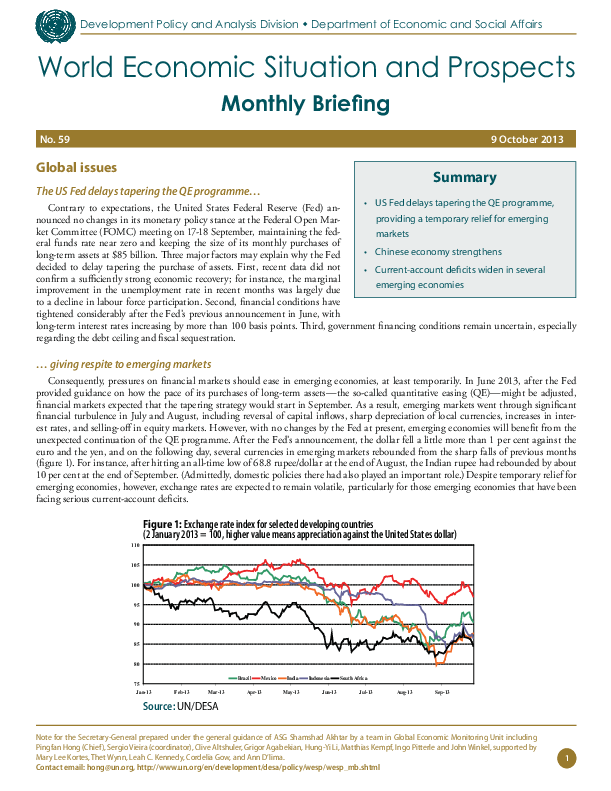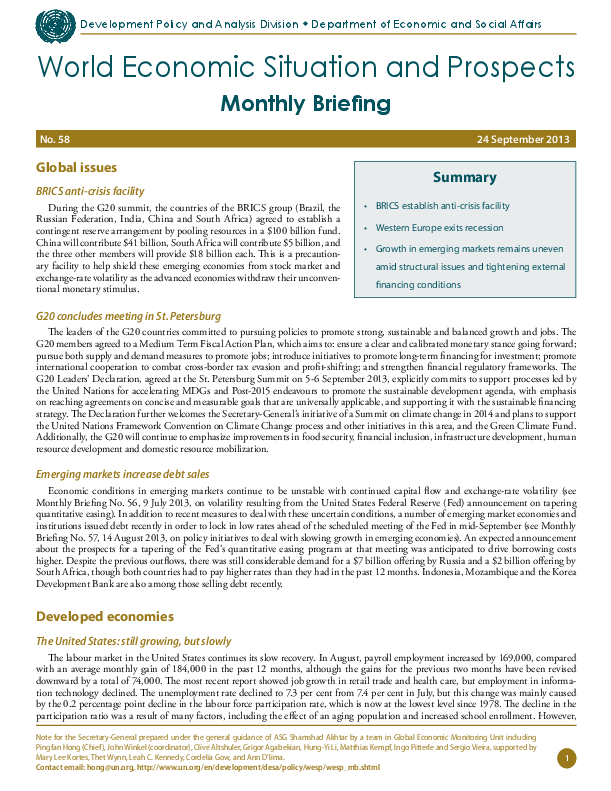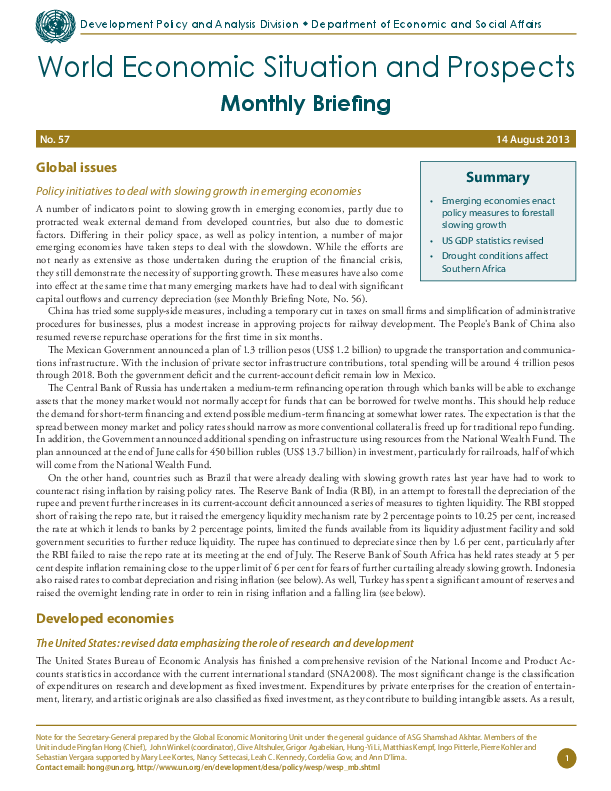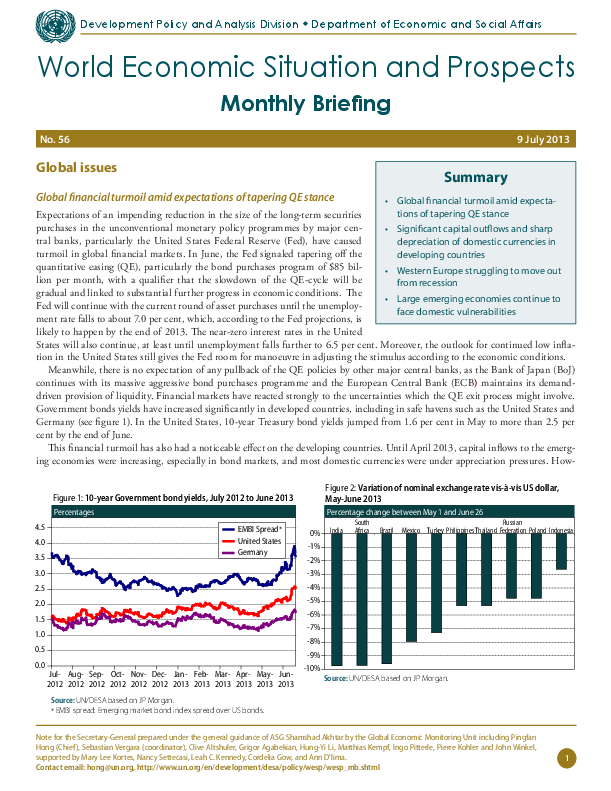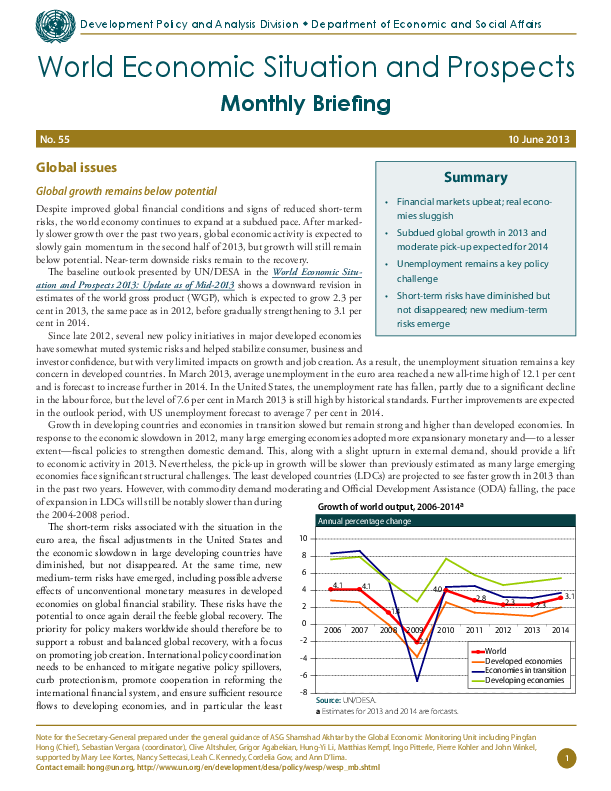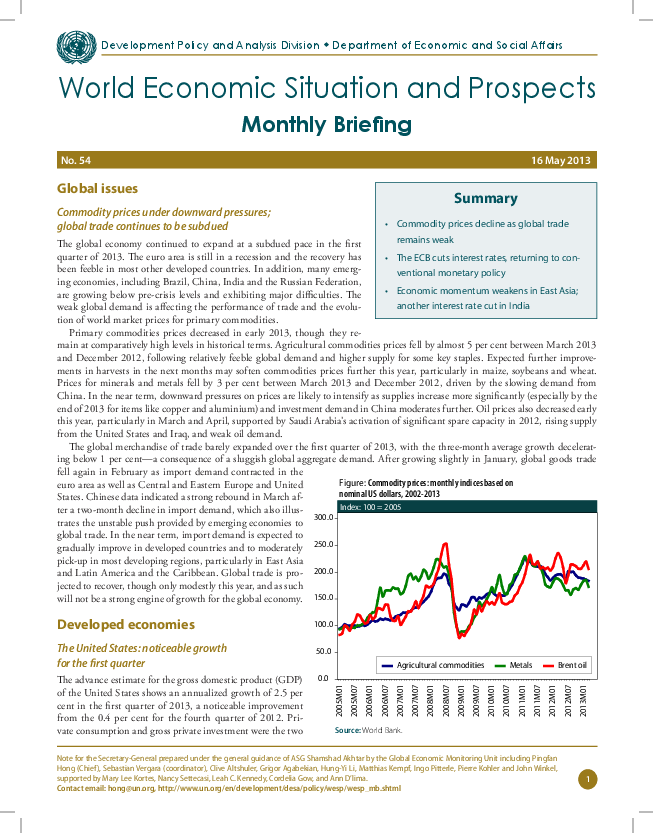Publications
Displaying 131 - 140 of 195
Summary: Emerging economies face renewed financial turbulence?
U.S. economy registered robust GDP growth in the?fourth quarter of 2013
?Last quarter of 2013 revealed a heterogeneo
Summary: World economy is expected to improve in 2014
Unemployment rates remain a major challenge
Downside risks to the baseline scenario persist Global economic g
Summary: Anaemic economic recovery is accompanied by tame?inflation in developed economies.
?GDP growth is stronger than expected in the United?States.
?Currencies in some emerging econ
Summary: Global?manufacturing?production?has improved
Economic?recovery?is?strengthening?in?developed?economies,?although?slowly
Public?fiscal?stimulus?programmes?have?been?a?determinan
Summary: US Fed delays the tapering of the QE programme, providing a temporary relief for emerging markets
Chinese economy strengthens
Current-account deficits widen in several emerging
Summary: BRICS?establish?anti-crisis?facility
Western?Europe?exits?recession
Growth?in?emerging?markets?remains?uneven amid?structural?issues?and?tightening?external?financing?conditio
Summary: Emerging economies enact?policy measures to forestall?slowing growth
US GDP statistics revised
Drought conditions affect?Southern Africa A number of indica
Summary: Global?financial turmoil?amid?expectations?of?tapering?QE?stance
Significant?capital?outflows?and?sharp?depreciation?of?domestic?currencies?in?developing?countries
Western?Europe?s
Summary: Financial?markets?upbeat;?real?economies?sluggish
Subdued?global?growth?in?2013?and?moderate?pick-up?expected?for?2014
Unemployment?remains?a?key?policy?challenge
Short-te
Summary:? Commodity?prices?decline?as?global?trade?remains?weak
The?ECB?cuts?interest?rates,?returning?to?conventional?monetary?policy
Economic?momentum?weakens?in?East?Asia;?another?interest?
 Welcome to the United Nations
Welcome to the United Nations
